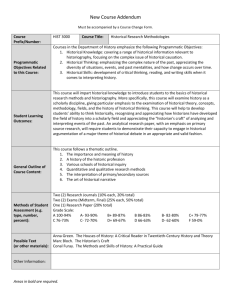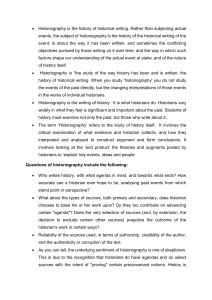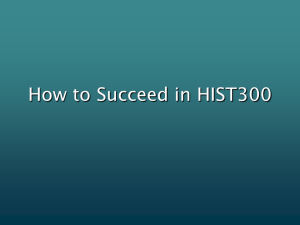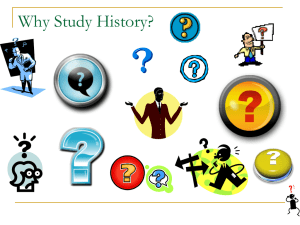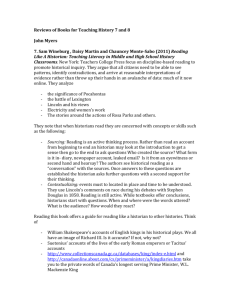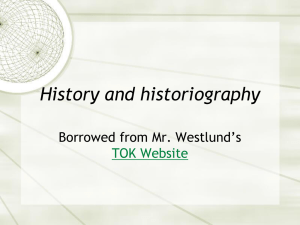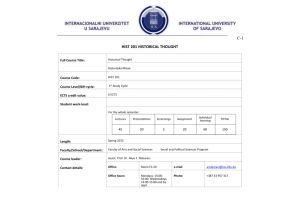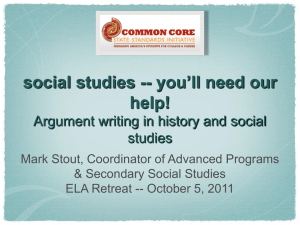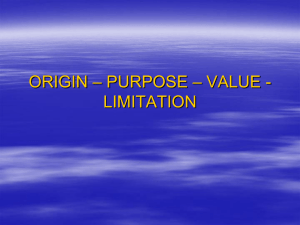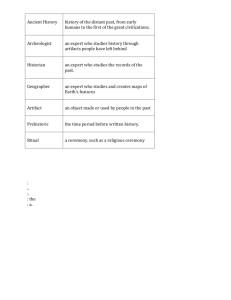Historiography Comparative Analysis of Texts in History
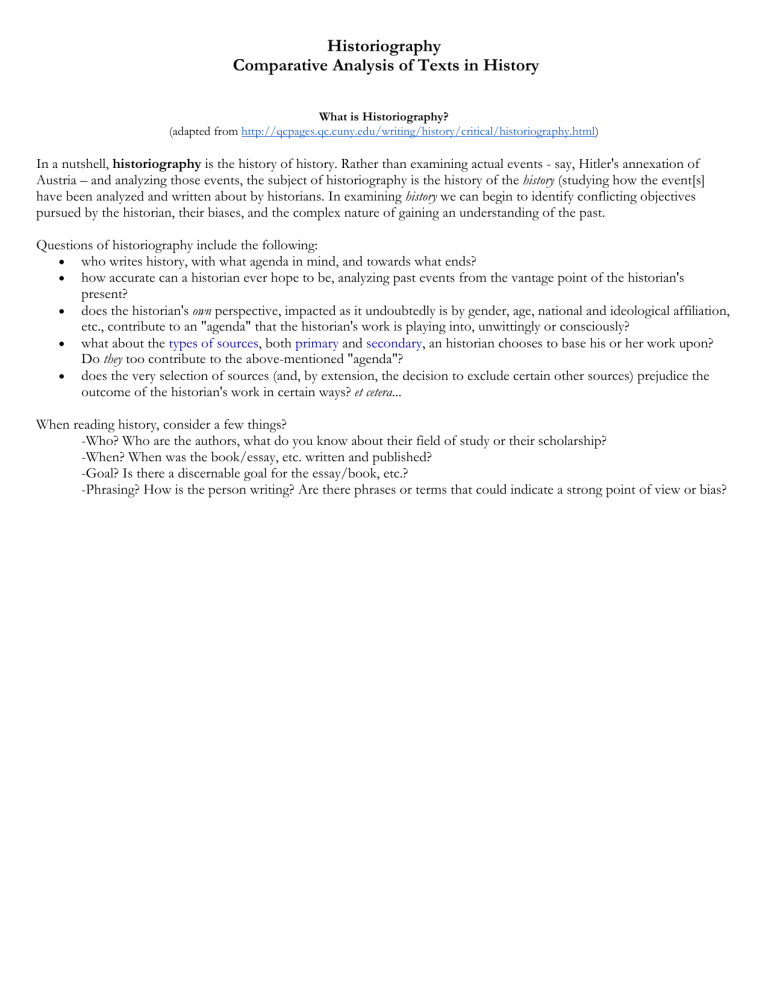
Historiography
Comparative Analysis of Texts in History
What is Historiography?
(adapted from http://qcpages.qc.cuny.edu/writing/history/critical/historiography.html
)
In a nutshell, historiography is the history of history. Rather than examining actual events - say, Hitler's annexation of
Austria – and analyzing those events, the subject of historiography is the history of the history (studying how the event[s] have been analyzed and written about by historians. In examining history we can begin to identify conflicting objectives pursued by the historian, their biases, and the complex nature of gaining an understanding of the past.
Questions of historiography include the following:
who writes history, with what agenda in mind, and towards what ends?
how accurate can a historian ever hope to be, analyzing past events from the vantage point of the historian's present? does the historian's own perspective, impacted as it undoubtedly is by gender, age, national and ideological affiliation, etc., contribute to an "agenda" that the historian's work is playing into, unwittingly or consciously?
what about the types of sources , both primary and secondary , an historian chooses to base his or her work upon?
Do they too contribute to the above-mentioned "agenda"? does the very selection of sources (and, by extension, the decision to exclude certain other sources) prejudice the outcome of the historian's work in certain ways? et cetera...
When reading history, consider a few things?
-Who? Who are the authors, what do you know about their field of study or their scholarship?
-When? When was the book/essay, etc. written and published?
-Goal? Is there a discernable goal for the essay/book, etc.?
-Phrasing? How is the person writing? Are there phrases or terms that could indicate a strong point of view or bias?
Name:__________________________
A Pocket History of the United States by Henry Steele Commager and Allan Nevins
This long book was written over many years and was released in many editions. Copyrights on the book are 1942, 1945,
1951, 1976, 1981, 1986, & 1992.
Instructions: Please read the sections New Forces and Horizons and The Spanish American War (pages 357-367). STOP at The
Open Door: Roosevletian Diplomacy. For the first two sections please answer the questions below.
Questions:
1.
What is the thesis and purpose for the first section “New Forces and New Horizons”?
2.
As you read critically, identify areas of bias or position. Identify key phrases or words that indicate a point of view.
Write down phrases/words that may indicate bias.
3.
How do the authors view the process of events in history (events flowing from the common person [social history], events as subject to the whims of important men [great man theory] etc)?
4.
For the authors, what were the roots of imperialism? How do the authors support their point of view?
5.
On page 362, the authors state that the US would “have to” intervene if the war in Cuba continued. How do they prove this “have to”? Do you find it to be a compelling argument? Why/why not?
6.
How do the authors view American leaders, such as McKinley, against their view of Spanish leaders? What was are these sides framed?
7.
How did the Spanish American War contribute to America’s preparedness for World War I?
8.
Assess the claim “policies... respecting Anglo-American relations...the hopes of democracy, nay of civilization itself, were soon to rest upon the collaboration of two English speaking powers.” [Do not assess based on your opinion, but on your skills as a reader of history].

